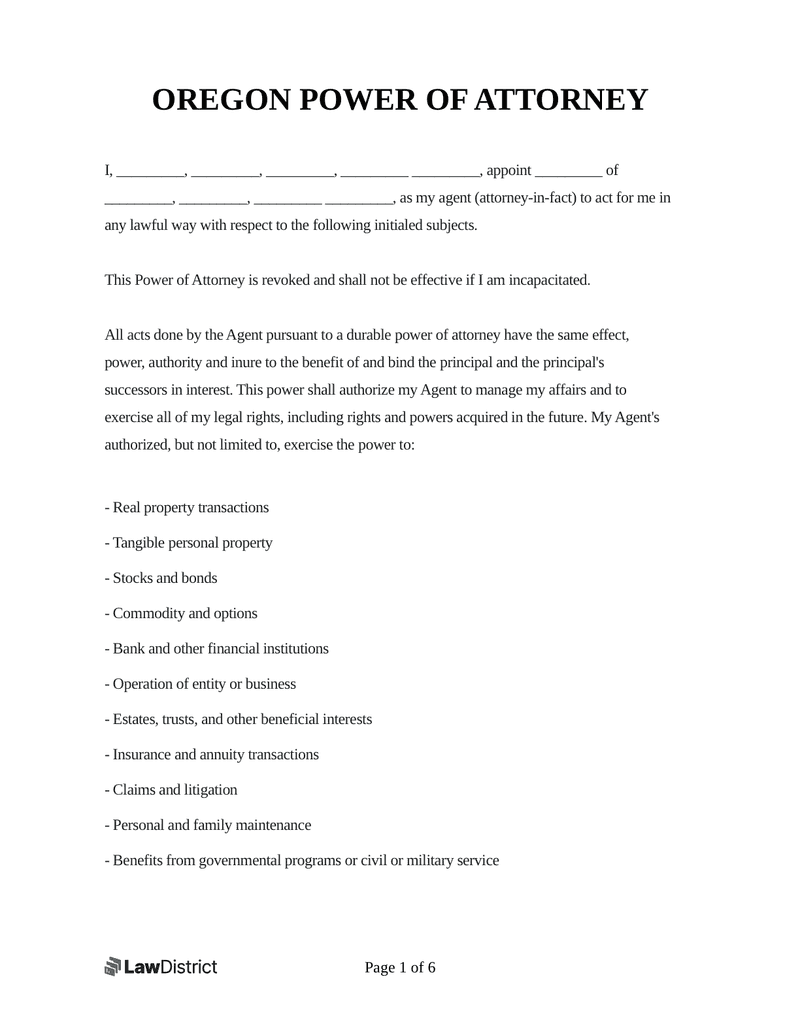To comply with OR law you’ll need to complete your Power of Attorney form and ensure that it is correctly signed. There are a number of rules that control how this should be done.
Firstly, the people signing the POA must all be legally able to sign a contract. This means they should be able to demonstrate that:
- They are over 18 years old
- They are sound of mind
- They understand the agreement being signed
If the Agent is a financial institution, they must have trust powers and a registered place of business within Oregon.
The document itself must also be signed in a way that’s legally compliant with Oregon state statutes. Under OR legislation, this must be done in the following way:
- Both the Principal and the Agent must sign
- A notary public must also be present at the signing to notarize the document, and must sign it too
Be aware, that once the POA document is completed and signed, there are still some steps you’ll need to take if you plan to manage real estate in Oregon. You’ll need to register the document with the local clerk of the county where the property is located within 30 days of signing. An OR Real Estate POA must also be acknowledged before a notary public.
Read more about OR Power of Attorneys in the Oregon statutes.
